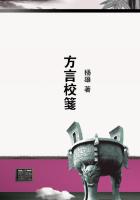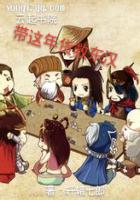WITHOUT being more curious than my neighbors, there are several social mysteries that I should like to fathom, among others, the real reasons that induce the different classes of people one sees at the opera to attend that form of entertainment.
A taste for the theatre is natural enough. It is also easy to understand why people who are fond of sport and animals enjoy races and dog shows. But the continued vogue of grand opera, and more especially of Wagner's long-drawn-out compositions, among our restless, unmusical compatriots, remains unexplained.
The sheeplike docility of our public is apparent in numberless ways; in none, however, more strikingly than in their choice of amusements. In business and religion, people occasionally think for themselves; in the selection of entertainments, never! but are apparently content to receive their opinions and prejudices ready-made from some unseen and omnipotent Areopagus.
The careful study of an opera audience from different parts of our auditorium has brought me to the conclusion that the public there may be loosely divided into three classes - leaving out reporters of fashionable intelligence, dressmakers in search of ideas, and the lady inhabitants of "Crank Alley" (as a certain corner of the orchestra is called), who sit in perpetual adoration before the elderly tenor.
First - but before venturing further on dangerously thin ice, it may be as well to suggest that this subject is not treated in absolute seriousness, and that all assertions must not be taken AU PIED DE LA LETTRE. First, then, and most important, come the stockholders, for without them the Metropolitan would close. The majority of these fortunate people and their guests look upon the opera as a social function, where one can meet one's friends and be seen, an entertaining antechamber in which to linger until it's time to "go on," her Box being to- day as necessary a part of a great lady's outfit as a country house or a ball-room.
Second are those who attend because it has become the correct thing to be seen at the opera. There is so much wealth in this city and so little opportunity for its display, so many people long to go about who are asked nowhere, that the opera has been seized upon as a centre in which to air rich apparel and elbow the "world." This list fills a large part of the closely packed parquet and first balcony.
Third, and last, come the lovers of music, who mostly inhabit greater altitudes.
The motive of the typical box-owner is ******. Her night at the opera is the excuse for a cosy little dinner, one woman friend (two would spoil the effect of the box) and four men, without counting the husband, who appears at dinner, but rarely goes further. The pleasant meal and the subsequent smoke are prolonged until 9 or 9.30, when the men are finally dragged murmuring from their cigars. If she has been fortunate and timed her arrival to correspond with an ENTR'ACTE, my lady is radiant. The lights are up, she can see who are present, and the public can inspect her toilet and jewels as she settles herself under the combine d gaze of the house, and proceeds to hold an informal reception for the rest of the evening. The men she has brought with her quickly cede their places to callers, and wander yawning in the lobby or invade the neighboring boxes and add their voices to the general murmur.
Although there is much less talking than formerly, it is the toleration of this custom at all by the public that indicates (along with many other straws) that we are not a music-loving people. Audible conversation during a performance would not be allowed for a moment by a Continental audience. The little visiting that takes place in boxes abroad is done during the ENTR'ACTES, when people retire to the salons back of their LOGES to eat ices and chat. Here those little parlors are turned into cloak-rooms, and small talk goes on in many boxes during the entire performance. The joke or scandal of the day is discussed; strangers in town, or literary and artistic lights - "freaks," they are discriminatingly called - are pointed out, toilets passed in review, and those dreadful two hours passed which, for some undiscovered reason, must elapse between a dinner and a dance. If a favorite tenor is singing, and no one happens to be whispering nonsense over her shoulder, my lady may listen in a distrait way. It is not safe, however, to count on prolonged attention or ask her questions about the performance. She is apt to be a bit hazy as to who is singing, and with the exception of FAUST and CARMEN, has rudimentary ideas about plots. Singers come and go, weep, swoon, or are killed, without interfering with her equanimity. She has, for instance, seen the HUGUENOTS and the RHEINGOLD dozens of times, but knows no more why Raoul is brought blindfolded to Chenonceaux, or what Wotan and Erda say to each other in their interminable scenes, than she does of the contents of the Vedas. For the matter of that, if three or four principal airs were suppressed from an opera and the scenery and costumes changed, many in that chattering circle would, I fear, not know what they were listening to.
Last winter, when Melba sang in AIDA, disguised by dark hair and a brown skin, a lady near me vouchsafed the opinion that the "little black woman hadn't a bad voice;" a gentleman (to whom I remarked last week "that as Sembrich had sung Rosina in the BARBER, it was rather a shock to see her appear as that lady's servant in the MARIAGE DE FIGARO") looked his blank amazement until it was explained to him that one of those operas was a continuation of the other. After a pause he remarked, "They are not by the same composer, anyway! Because the first's by Rossini, and the MARIAGE is by Bon Marche.
I've been at his shop in Paris."















